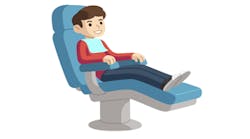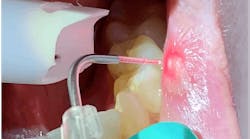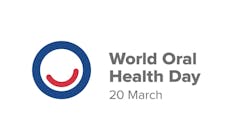New study: Medicaid dental programs in 7 states could save $550 million annually through adoption of a DSO model
According to the study, Kool Smiles dental practices are low-cost, conservative providers of Medicaid dental care compared to other Medicaid dental providers
The Benevis Foundation has announced the release of a multiyear, multistate study by Dobson DaVanzo & Associates examining Medicaid dental utilization trends and expenditures in seven states, using publicly available Medicaid dental claims. The study, released during National Children’s Dental Health Month, found that providers from Kool Smiles, a national dental practice serving pediatric Medicaid patients, performed more conservative, cost-effective care when compared to other Medicaid dental providers in Texas, Indiana, Virginia, Georgia, Mississippi, Louisiana, and South Carolina.
The analysis of Medicaid claims data supports recent research indicating that the dental service organization (DSO) practice support model is effectively narrowing the gap in access to quality dental care for low-income children and families.
READ MORE | ADA: Supply of dentists is increasing, mixed news in access to care
Using publicly available Medicaid data from 2011 to 2015, the study found:
- Kool Smiles dental providers performed 15% fewer services overall, including 40% fewer extractions and 39% fewer pulpotomies.
- As a result of lower utilization rates, Kool Smiles patients had an overall average monthly Medicaid expenditure that was 33% lower than non-Kool Smiles patients across all states and years analyzed.
- If all Medicaid dental providers in these seven states adopted the same care protocol and utilization rates as Kool Smiles providers, the total savings to state Medicaid programs would be more than $550 million annually.
- The annual Medicaid savings could fund the provision of dental care for up to 1.9 million more Medicaid children who currently do not receive care.
“Existing literature suggests that the emergence of the DSO model in recent years has contributed to significant dental access gains among the Medicaid patient population,” said Alan Dobson, PhD, of Dobson DaVanzo & Associates. “This analysis builds on those findings by showing that Kool Smiles, a DSO-affiliated dental provider, provides more conservative care to Medicaid dental patients and at lower cost to state Medicaid programs.”
“Oral health improves when children have access to regular, preventive dental care,” said D Ray Gifford, DDS, managing dental director for Kool Smiles. “By providing a dental home to Medicaid children who have historically lacked access to a dentist and addressing needed preventative care early on, we are able to reduce the potential for more expensive, restorative procedures over time. If we can increase access and improve the oral health of these patients while lowering Medicaid costs in the process, we better serve both our patients and taxpayers.”
READ MORE | CHIP and the dental lifeline: 4 questions with Kool Smiles’ Dr. D Ray Gifford
The analysis represents utilization and Medicaid expenditures across 164 Kool Smiles providers and 8,077 non-Kool Smiles providers, which amounts to more than 490,000 unique Kool Smiles patients and 2,000,000 non-Kool Smiles patients.
The report also provides a solution to enable the Centers for Medicare & Medicaid Services (CMS) to reach its goal of increasing the number of Medicaid and Children’s Health Insurance Program (CHIP) eligible children and young people aged one to 20 who receive preventive dental services by 10%. The study suggests that the DSO practice model employed by Kool Smiles would be an effective way of addressing what the American Dental Association (ADA) has defined as the “Medicaid funding crisis,” by decreasing utilization and costs while improving access.
The research for this study was prepared by Audrey El-Gamil; Nikolay Manolov, PhD.; Dorothy Chen, MPH; Joan DaVanzo, PhD, MSW; and Al Dobson, PhD. The study was funded by the Benevis Foundation.
For more information on the cost savings and quality of care provided by DSOs, you can read Dobson Davonzo & Associates’ full study here.
Source: Benevis Foundation press release 1 February 2016






